Stop the Traffik App
Online ToolsA tool to enable people across the world to join the fight against human trafficking and modern slavery. child labour More information on the app can be found here. ...Read More
The Dutch government expects internationally operating companies to implement corporate social responsibility (CSR). The basic principles in this context are the OECD guidelines for multinational enterprises. This involves you assessing which CSR risks one is likely to encounter in their business activities, such as during procurement/imports, in their production abroad, or when exporting their products. Risks may occur in relation to working conditions, the environment and corruption, for instance. Besides seeking risk transparency, one is expected to take measures to mitigate the risks they have identified. The CSR Risk Check is a useful CSR risk assessment tool, giving individuals an overview of the issues they may encounter in their organisation or company, including earlier on in the production chain. The risk check is easy to use and will instantly give individuals a list of possible issues for each country and/or product in the form of a risk assessment. The CSR Risk Check is developed and owned by MVO Nederland.
The Tool
The CSR Risk Check is aimed at entrepreneurs who purchase internationally produced products, export products or produce abroad.
The company:
– purchases products or services through a agent or directly from a manufacturer or supplier, and/or
– exports products or services, and/or
– produces or offers services abroad (or invests in production locations abroad).
After taking this brief test, one will know which international CSR risks their trade activities carry and what they can do to mitigate these risks.
How to use the CSR Risk Check
First, choose the industry of concern in the first box.
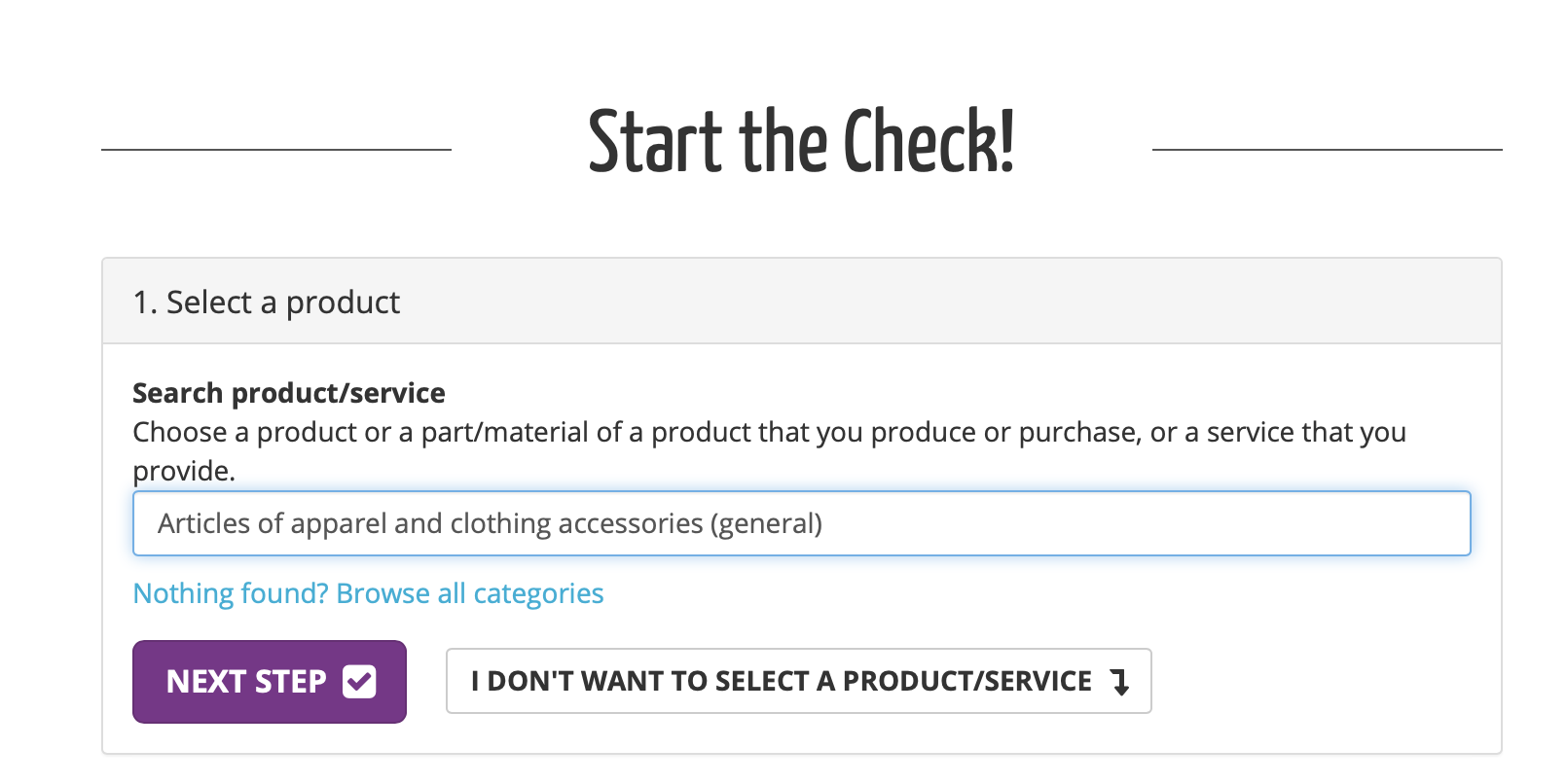
In the next window, select the region of interest.
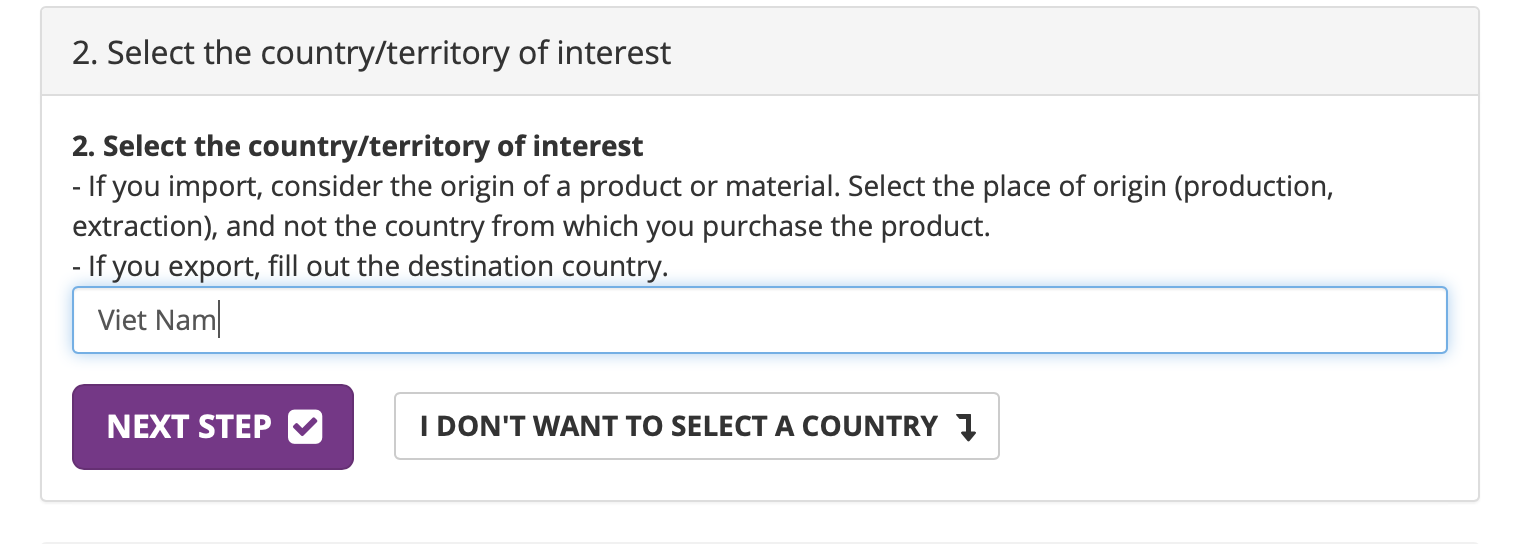
Once you proceed to the next page (click “Proceed to Risks and Advice”), your advice will appear, separated into different categories.
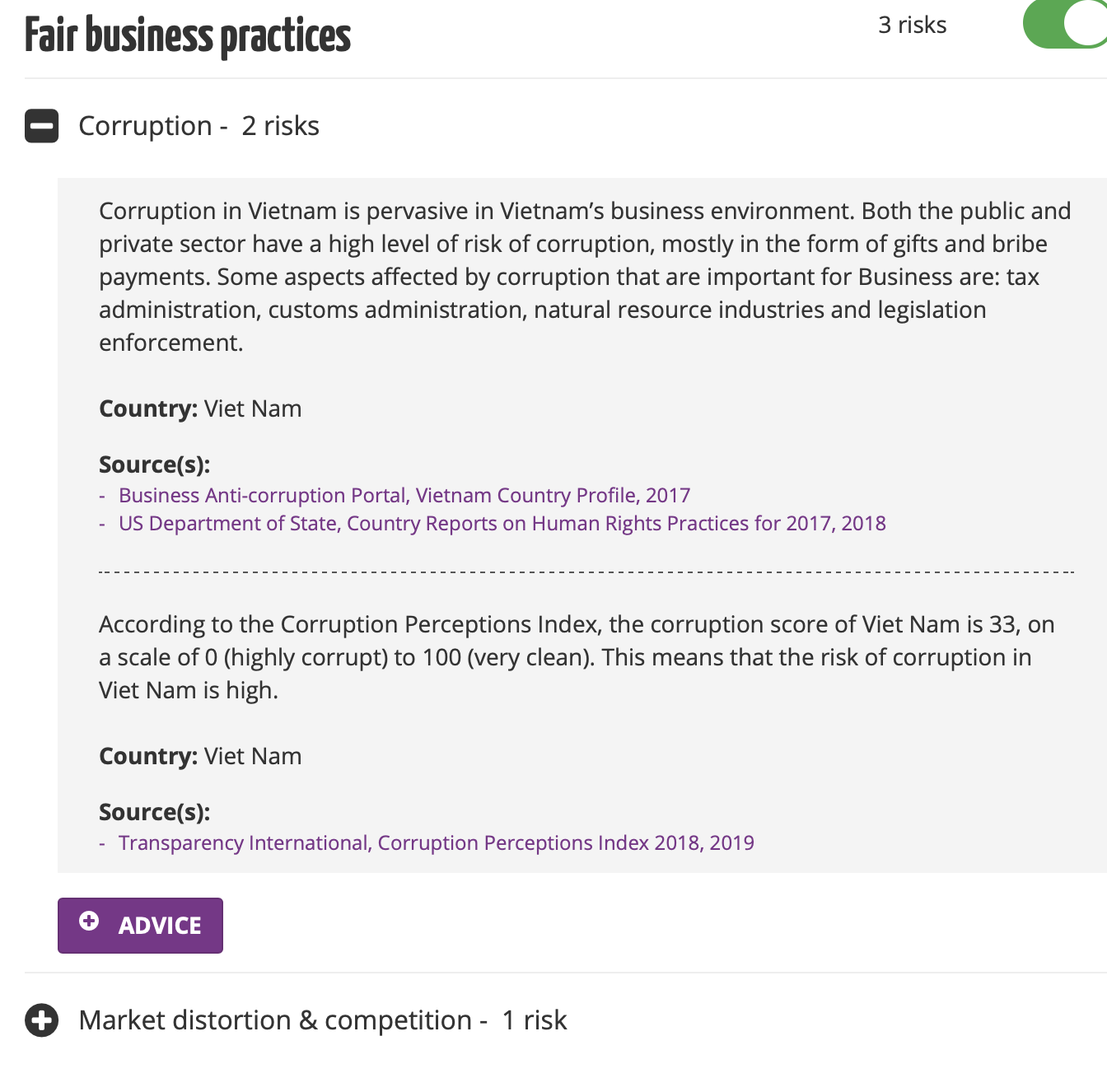
You can also get your results in PDF format, selecting only the topics you would like to appear within it.
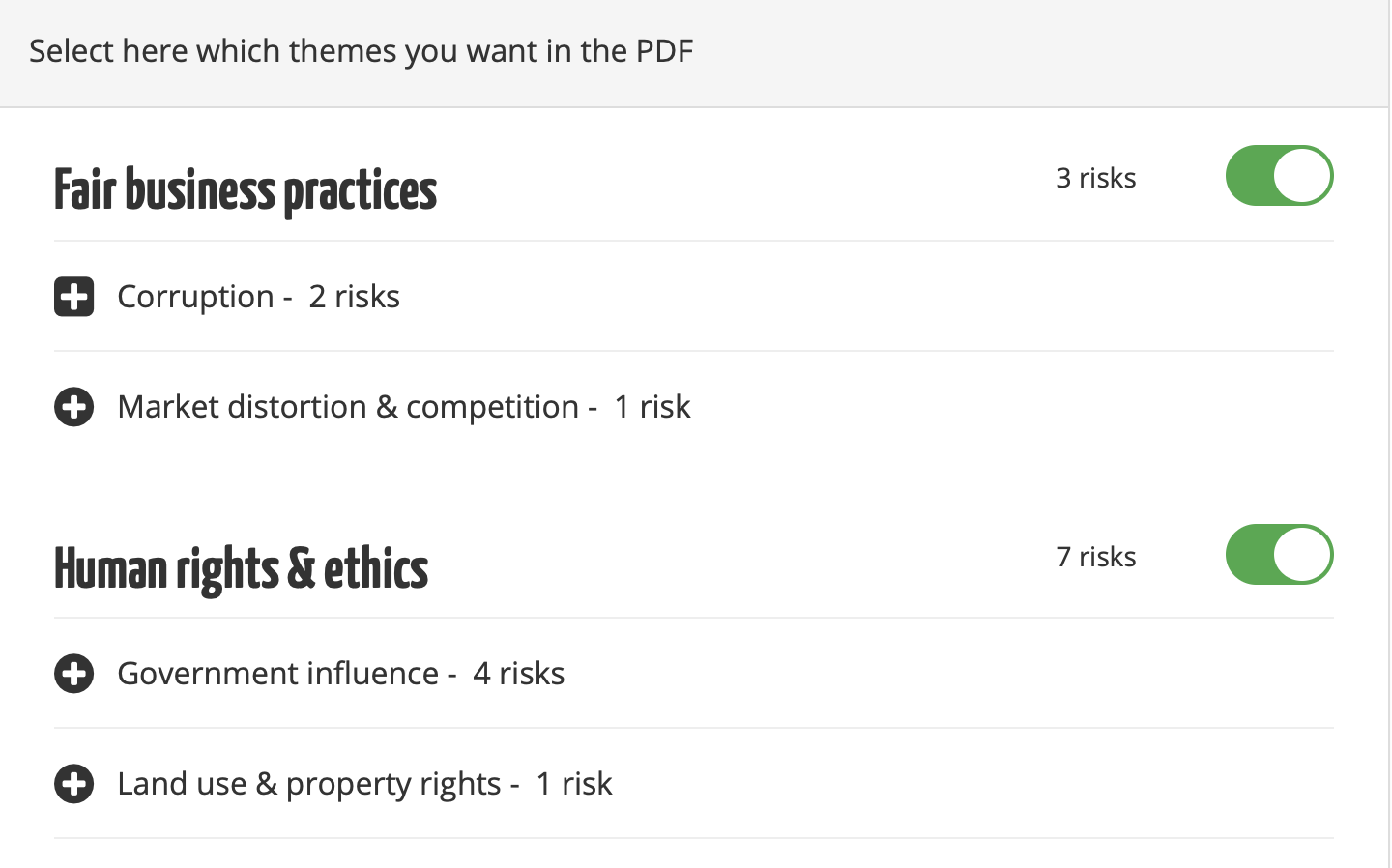
You can download the PDF directly to your computer.
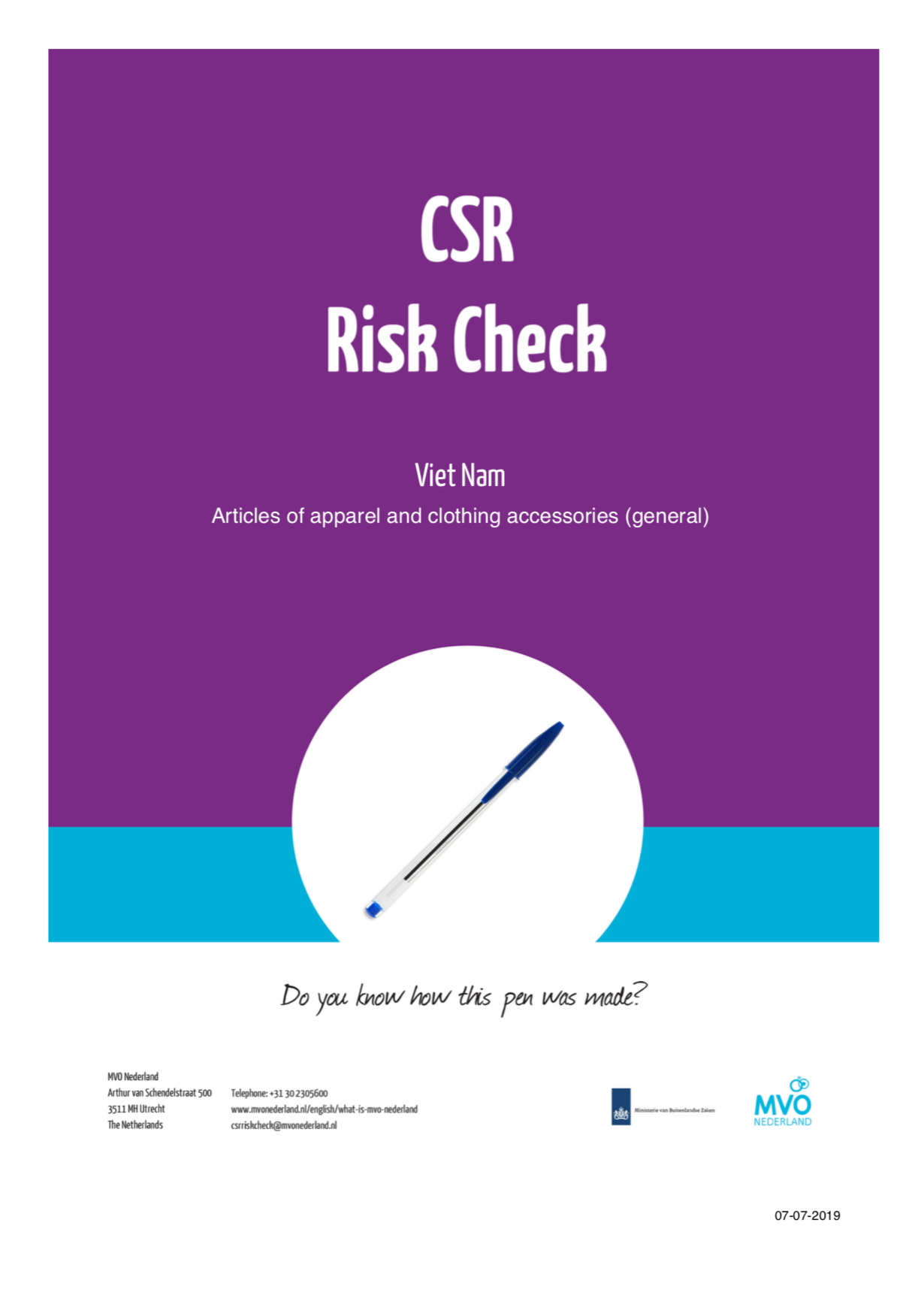
Supporters
The tool is funded by the Dutch Ministry of Foreign Affairs and technical assistance is provided by Shopworks. The German version of the CSR Risk Check is funded by the Agentur für Wirtschaft & Entwicklung.
Contact Information
If you have any questions regarding the CSR Risk Check webtool, or international CSR issues, you can send an email to csrriskcheck@mvonederland.nl.
You can reach them via phone at +31 (0)30 2305600 (helpdesk MVO Nederland).
They also invite you to give feedback through this form.
Click here to go to the MVO Netherland’s CSR Risk Check Website.
A tool to enable people across the world to join the fight against human trafficking and modern slavery. child labour More information on the app can be found here. ...Read More
The Counter-Trafficking Data Collaborative (CTDC), developed by IOM and Polaris, with contributions from Liberty Asia, is the first global data hub on human trafficking, with data contributed by counter-trafficking organizations around the world. It...Read More
The 1982 UN Law of the Sea was the largest ever annexation of our planet and our ocean. In one stroke, one-third of our planet was formally designated as 'exclusive economic zones', giving coastal countries rights to 200 miles of ocean around their ...Read More
Business & Human Rights Resource Centre is an online repository of resources covering a broad range of issues, including child labour. The reosurce centre provides an overview of available online reosurces on the topci of child labour, ranging f...Read More